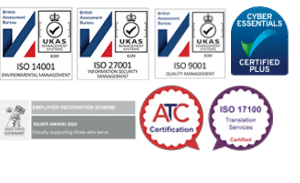The most recent government update has revealed the conditional changes to the current lockdown. While the easing of restrictions may bring relief, many are still left vulnerable to a lack of information and advice.
As the media interpret and predict on potential timelines of the new normal, advice can become confusing for anyone. But what if you didn’t speak English?
It has already been widely reported that ethnic minorities are making up a higher percentage of COVID-19 cases. [1] This is devastating to hear. Resultantly, there is a need to translate and interpret information for those who need it. Also, the response must include working to stop the spread of misinformation and inaccurate reporting.
The way information is represented will also factor in how well it is understood. If you cannot read English, blocks of text will be harder to understand than images and graphs conveying visual ideas. However, there is still an uncomfortable amount of room that allows for misinterpreting. The only true way to prevent misinformation in other languages and throughout non-English speaking communities is via accurate translation and interpreting.
How government authorities have tackled COVID-19 messaging
Of course, the sudden rise and quick responses required to battle COVID-19 has put a strain across all essential services. They must be certain they are releasing accurate information and taking safety measures at an incredible pace. In many ways, public sector bodies have done amazing jobs in this. However, there is, of course, the challenge of quickly and effectively communicating any changes and new information.
DA Languages has the expertise and skills accumulated over 20 years of working with the NHS, local councils and central government. We have continued to and are proud to support our clients throughout the COVID-19 pandemic. In a remote working world, we have worked at translating all necessary information whilst providing telephone and video interpreting.
Who is vulnerable to poor accessibility?
Many areas of concern are within mental health and domestic abuse with vulnerable members of society potentially staying in toxic and damaging situations. Refugees are more likely to suffer PTSD, anxiety and depression [2]as they experience marginalisation and inability to access services and support. One major factor in this is due to language barriers. Furthermore, there has been an increase in domestic abuse cases throughout the UK. Of course, this is still not to say that all cases are being reported.
Access to services and information is of vital importance for all in the UK and across the globe. This is not only for right now but into our society’s future. One aspect COVID-19 has highlighted is how there need to be more multilingual resources available, as well as more support for non-English speakers and the Deaf/Hard of Hearing communities.
DA Languages is proud to support in many ways to support non-English speakers accessing the services they need. Our services see professionals help end-users in need, unhindered by language barriers. We have continued to innovate our services during this period.
Translation has played a major role in our support to our clients. The translation of FAQs, informational posters and leaflets and websites, for example, helps organisations not be overload of calls. This is because all information end-users need is readily available to them through these translated materials.
Additionally, when searching for information, a non-English speaker can watch a video subtitled in their langauge. These can answer their questions, provide support and help relieve any concerns.
Using interpreting to share vital government guidance information
Telephone interpreting has seen increased demand over the past couple of months, and DA Languages was more than prepared for. This service allows for anonymity and provides excellent support for helplines and charitable causes as it is available 24/7.
Telephone interpreting is a great service for when you need to quickly access an interpreter. It can also be pre-booked for conference calls with up to 10 participants. This can be very useful when needing to discuss anything with a non-English speaking family over the phone.
Video interpreting has increased in usage as it works as the second-best alternative to face-to-face interpreting. Despite being apart, the end-user and the interpreter have the benefit of being able to see each other. Three-way video interpreting is great for longer appointments and when visual cues and communication are necessary. For example, when working with BSL and non-spoken end users, visual connection is essential.
Finally, we have seen an increase in face-to-face interpreting in some areas where it is safe to proceed with in-person bookings. Of course, DA Languages will continue to do everything possible to ensure the safety of our linguists and clients.
What’s next for government authority communication and accessibility?
In conclusion, COVID-19 has revealed areas across the UK in which language support can be improved.
DA Languages is proud of help organisations across the UK improve accessibility for non-English speakers and the Deaf/Hard of Hearing communities. During these strange times, it’s important to stick together and work as one to help everyone get through this.
If you are interested in our services and how we can help support you email enquiries@www.dalanguages.co.uk.
[1]https://www.theguardian.com/world/2020/may/07/black-people-four-times-more-likely-to-die-from-covid-19-ons-finds
[2]https://webcache.googleusercontent.com/search?q=cache:EzxWoVSzEJEJ:https://www.mentalhealth.org.uk/a-to-z/b/black-asian-and-minority-ethnic-bame-communities+&cd=3&hl=en&ct=clnk&gl=uk&client=safari



